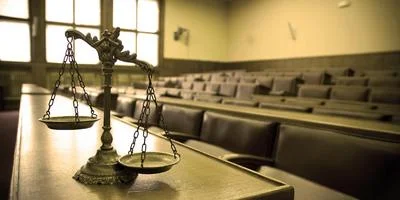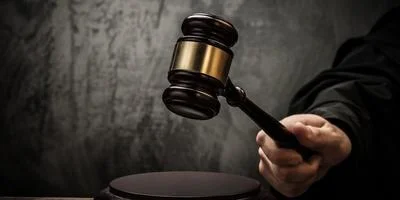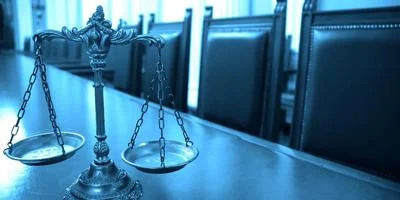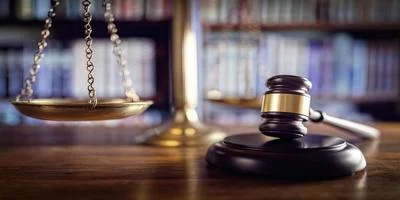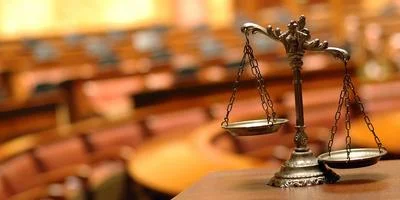Library
Governments |
Public Library Districts
North English, IA 52316
Recent News About Library
View More
-
HOUSTON - Harris County Attorney Christian D. Menefee has announced Joseph D. Lawson as the new Director of the Harris County Robert W. Hainsworth Law Library, a press release states.
-
American history is under siege.
-
Houston, TX (February 9, 2021) — Today, Harris County Commissioners Court adopted a resolution, introduced by Harris County Commissioner Rodney Ellis and led by Harris County Attorney Christian D. Menefee, to rename the Harris County Law Library in honor of Robert W. Hainsworth, a press release states.
-
Governor Greg Abbott has appointed Susan Kelly as Judge of the 54th Judicial District Court in McLennan County, effective January 1, 2021, for a term set to expire on December 31, 2022, or until her successor shall be duly elected and qualified.
-
HOUSTON – Denis Calabrese, a convicted felon, has been hit with a lawsuit alleging he received millions of dollars in kickbacks while in a position of power with the Laura and John Arnold Foundation.
-
My law school years (1977-80) at the University of Texas were, in hindsight, close to idyllic. I loved my first-year professors, tuition at UT was dirt cheap, Austin was a wonderful place to live, and I reveled in the “college town” ambience, which was new to me. (Prior to arriving at UT, I had never attended a college football game. During my first year—when the Longhorns went undefeated in the regular season and Earl Campbell won the Heisman Trophy–I had season tickets on the 50-yard line at UT’s gigantic Memorial Stadium, for a pittance that even a broke law student could afford.) The post-game victory spectacle—honking horns on the Drag and the Tower lit up in orange—formed indelible memories.
-
In recent years my law school alma mater has hosted an annual “celebration of diversity” event, which I recently attended out of curiosity. I thought that my law school class of long ago was quite diverse, with students from all over Texas, who had attended a variety of colleges and universities located throughout the country, representing a wide range of backgrounds—socio-economic, age, marital status, political orientation, and otherwise.
-
I have been thinking about Robert Bork recently, prompted in part by the 30th anniversary of his rejection by the Senate on November 23, 1987. Next month will mark the fifth anniversary of his passing on December 19, 2012. Bork was profoundly influential in conservative legal circles when I graduated from law school in 1980 and started paying closer attention to constitutional theory. I was impressed with both Bork’s scholarly writings and his more polemical articles in publications such as National Review. A 1982 essay he wrote in NR, entitled “The Struggle Over the Role of the Court,” reprinted in his 2008 anthology A Time to Speak, remains timely—even prescient. Ramesh Ponnuru has called Bork’s 1990 book, The Tempting of America, written in the wake of his confirmation defeat, “the most important popular statement of judicial conservatism yet produced.”
-
Readers of Law and Liberty may have noticed that I am a fan of Justice Antonin Scalia (for example, here and here). I am also an admirer of Robert H. Bork, whom my colleague John McGinnis has described as “the most important legal scholar on the right in the last 50 years.” Bork was a pioneer in both the field of antitrust law (with his influential 1978 book The Antitrust Paradox) and constitutional law, as the father of what we now call “originalism.” In his seminal 1971 article in the Indiana Law Journal, entitled “Neutral Principles and Some First Amendment Problems,”[1] and in his later best-selling books, The Tempting of America (1990) and Slouching Towards Gomorrah (1996), Bork eviscerated the “noninterpretive” theories of constitutional law that dominated the legal academy in the 1960s and 1970s.
-
Justice Antonin Scalia definitely had a way with words. Law students pore over his opinions not just for Scalia’s keen analysis but to delight in the verve of his prose—pungent, clear, combative, and always colorful. Scalia aficionados also savor his books and essays, which showcase his forceful rhetoric and deft pen. Alas, the body of Scalia’s judicial decisions and scholarship, although considerable, is finite. Fortunately, Scalia fans now have a treasure trove of new material to savor, in the form of a recently-released compilation of the late Justice’s speeches, entitled Scalia Speaks: Reflections on Law, Faith, and Life Well Lived.
-
Originalism is a two-way street. Judges wishing to interpret the Constitution in accordance with its original public meaning must not import into their decisions policy proscriptions not actually derived from the text and structure of that document. Just as important is that textualism and originalism require judges to give force to all provisions of the Constitution, and not pick and choose which clauses to enforce.
-
Proponents of “living constitutionalism” or other non-originalist theories of constitutional law sometimes argue that our now 230-year-old Constitution wasn’t designed for current social conditions. Prevailing attitudes on a variety of subjects have changed dramatically since 1787, critics of originalism say. Judges must be allowed to augment or update the Constitution to keep it “relevant.”
-
What prompts a man to change his mind on a serious matter after 35 years, and should the reversal be met with pride (for eventually getting it right), or chagrin (for taking so long)? For reasons of vanity, I’m going to take a positive tack and choose the former.
-
The unexpected retirement of Judge Janice Rogers Brown, 68, from the U.S. Court of Appeals for the D.C. Circuit will trigger a well-deserved celebration of her extraordinary judicial career, both as a federal appellate judge (since 2005) and previously as a member of the California Supreme Court (1996 to 2005). It will be difficult for President Donald Trump to appoint a replacement that comes anywhere close to filling the shoes of the of the forceful, fearless, and independent Brown, whose nomination by President George W. Bush to the nation’s second most influential court in 2003 was delayed for two years by Democratic opposition.Despite a filibuster in the U.S. Senate, Brown was ultimately confirmed in 2005 by a 56 to 43 vote, when the so-called Gang of 14 reached an agreement to avoid Republicans’ invocation of the “nuclear option.” Hopefully, Brown will continue to serve on the D.C. Circuit as a judge with “senior status.”
-
The latest tract by Erwin Chemerinsky, liberal law professor and dean of the University of California at Irvine School of Law, is depressingly familiar. Like his Enhancing Government: Federalism for the 21st Century (2008), The Conservative Assault on the Constitution (2011), and The Case Against the Supreme Court (2014), his new book is a diatribe masquerading as legal scholarship. The usual villains—conservative Supreme Court justices, malevolent government officials, rapacious corporations, racist police officers—are pitted against the wrongly accused, helpless consumers, and oppressed victims of discrimination.
-
In a prior post, I discussed the Pidgeon v. Turner case, now pending before the Texas Supreme Court, involving a taxpayer challenge to same-sex spousal benefits. Oral argument was held on March 1. The taxpayers challenging the city of Houston’s policy of granting same-sex spousal benefits to city employees were represented at oral argument by Jonathan Mitchell, a former Scalia clerk, former Texas solicitor general, and now a visiting professor at Stanford law school. The city of Houston was represented by Douglas Alexander, a leading appellate practitioner in an Austin law firm whose partners include former Texas Chief Justice Wallace Jefferson. The oral argument was superb, and both counsel fielded numerous questions from the fully-engaged justices.
-
The widely publicized judicial resistance to President Donald Trump’s executive order temporarily limiting entry into the United States by foreign nationals from certain countries has focused public attention as never before on the enormous power wielded by activist judges.
-
The Supreme Court’s fractured decision in Obergefell v. Hodges (2015) required states to recognize same-sex marriage. Obergefell came less than 30 years after Bowers v. Hardwick,[1] in which the court refused to recognize a right to engage in homosexual sodomy. In changing its mind, the Court effectively amended the U.S. Constitution with its Delphic utterances.
-
What are the prospects for constitutionalism and the rule of law under President Donald Trump? In my estimation, quite good. Unlike some of my libertarian (or classical liberal) friends, I didn’t quake at the possibility of Trump’s election (as I explained here). His shortlist of potential Supreme Court candidates was outstanding, and his cabinet picks to date have been first rate. Of course, assessing the success or failure of Trump’s presidency will rest on the actions he takes and the pol
-
In prior posts, I looked at the pro-union agenda of the Obama administration’s National Labor Relations Board, and the anti-employer policies undertaken by the Equal Employment Opportunity Commission, Occupational Safety and Health Administration, and Department of Labor. The leadership of the Department by Thomas Perez deserves a closer look, for Secretary Perez has brazenly promoted the objectives of organized labor at the expense of the rule of law.

